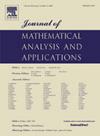Regular fractional weighted Wiener algebras and invariant subspaces
IF 1.2
3区 数学
Q1 MATHEMATICS
Journal of Mathematical Analysis and Applications
Pub Date : 2025-07-08
DOI:10.1016/j.jmaa.2025.129875
引用次数: 0
Abstract
Since the fifties, the interplay between spectral theory, harmonic analysis and a wide variety of techniques based on the functional calculus of operators, has provided useful criteria to find non-trivial closed invariant subspaces for operators acting on complex Banach spaces. In this article, some standard summability methods (mainly the Cesàro summation) are applied to generalize classical results due to Wermer [51] and Atzmon [8] regarding the existence of invariant subspaces under growth conditions on the resolvent of an operator. To do so, an extension of Beurling's regularity criterion [13] is proved for fractional weighted Wiener algebras related with the Cesàro summation of order . At the end of the article, other summability methods are considered for the purpose of finding new sufficient criteria which ensure the existence of invariant subspaces, resulting in several open questions on the regularity of fractional weighted Wiener algebras associated to matrix summation methods defined from non-vanishing complex sequences.
正则分数加权维纳代数与不变子空间
自五十年代以来,谱理论、调和分析和基于算子泛函演算的各种技术之间的相互作用,为寻找作用于复巴拿赫空间的算子的非平凡闭不变子空间提供了有用的准则。本文应用一些标准的可求和方法(主要是Cesàro求和)来推广由Wermer[51]和Atzmon[8]所得到的关于算子的解上生长条件下不变子空间存在性的经典结果。为此,证明了与Cesàro阶α≥0的和相关的分数加权维纳代数ρα的正则性准则[13]的推广。在文章的最后,为了寻找保证不变子空间存在的新的充分的判据,考虑了其他的可和性方法,得到了与非消失复序列定义的矩阵和方法相关的分数阶加权维纳代数的正则性的几个开放问题。
本文章由计算机程序翻译,如有差异,请以英文原文为准。
求助全文
约1分钟内获得全文
求助全文
来源期刊
CiteScore
2.50
自引率
7.70%
发文量
790
审稿时长
6 months
期刊介绍:
The Journal of Mathematical Analysis and Applications presents papers that treat mathematical analysis and its numerous applications. The journal emphasizes articles devoted to the mathematical treatment of questions arising in physics, chemistry, biology, and engineering, particularly those that stress analytical aspects and novel problems and their solutions.
Papers are sought which employ one or more of the following areas of classical analysis:
• Analytic number theory
• Functional analysis and operator theory
• Real and harmonic analysis
• Complex analysis
• Numerical analysis
• Applied mathematics
• Partial differential equations
• Dynamical systems
• Control and Optimization
• Probability
• Mathematical biology
• Combinatorics
• Mathematical physics.

 求助内容:
求助内容: 应助结果提醒方式:
应助结果提醒方式:


